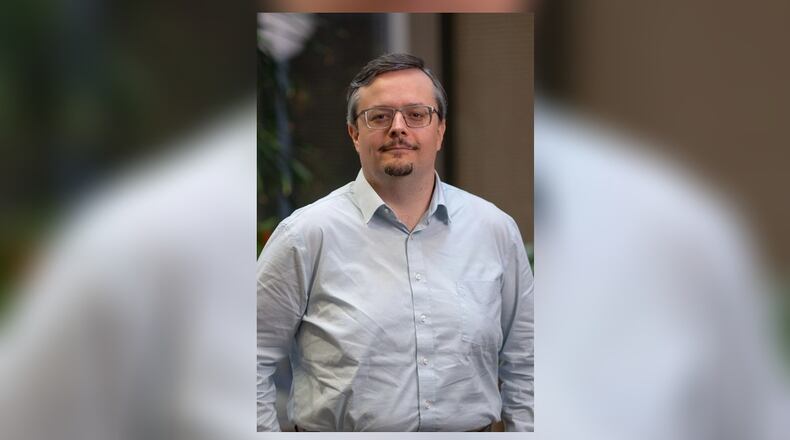Credit: AP
Credit: AP
Bridging the gap in Dayton
In communities like Dayton, with its diehard sports fans, the allure of March Madness betting can pose significant risks. While Gem City locals enjoy the excitement and the camaraderie of watching the tournament with friends, the easy accessibility of betting amplifies the potential for problem gambling.
Even as a social activity, gambling can quickly become a problem. Speaking of a casual poker tournament, “It was a once-a-week thing and that was great,” Dayton resident Paige Huskey said. “It was a wonderful social activity. I think most gamblers start out with gambling as a social activity.” But that fun quickly spiraled out of control. “I had $60,000 in credit card and personal loan debt,” Huskey said. “That’s when, like, for me, I was planning to end my life.”
Reaching out a helping hand
Recognizing the need for awareness, Problem Gambling Network of Ohio (PGNO) has been proactive in reaching out to the Dayton community through property tours at Hollywood Gaming at Dayton Raceway. These tours provide educational opportunities for clinicians and prevention professionals, casinos, and community leaders to understand the signs of problem gambling and the resources available for intervention. When clinicians and prevention professionals are able to speak directly to casino operators, these connections help truly foster understanding.
Even closer to home, the Montgomery County Prevention Coalition (preventionmc.org/gaming) is working throughout Dayton and Montgomery County to raise awareness, promote prevention, and develop educational opportunities. They work with schools to create gambling prevention curriculum for students, provide Problem Gambling Helpline signage to businesses, and promote gambling-alternate fundraising activities for schools, churches and other organizations. They also promote Digital Detox activities to help locals put down their phones and engage in outside activities in Dayton and throughout the county.
Resources and Support for Ohioans
For those who feel their gambling habits may be getting out of hand, Ohio offers a range of support services:
- Ohio Gambling Telehealth Network: This network provides access to qualified counselors specializing in problem gambling, particularly for those without local access to such resources. www.ohiogtn.org and 614-750-9877
- Ohio’s Warm Transfer Line: One of the only states in the nation with this service, Ohio ensures that individuals calling the Problem Gambling Helpline (800-589-9966) are directly connected to necessary resources, including individual counseling, group therapy, self-help groups, and financial management support.
- Pause Before You Play: This tool helps adults set structured betting limits, reinforcing responsible gambling habits. National data shows that those who establish monetary and time limits on betting are less likely to develop gambling-related issues. pausebeforeyouplay.org
With these tools and resources, Ohio aims to mitigate the risks associated with sports betting and provide immediate assistance to those in need.
Make the call
Anyone concerned about their gambling or that of a loved one is encouraged to seek help. Ohio’s Problem Gambling Helpline operates 24/7, offering free and confidential assistance. Call 1-800-589-9966 or text 4HOPE to 741741 to connect with trained specialists who can provide guidance and support.
As March Madness excitement builds, Ohioans are urged to stay informed and gamble responsibly. Whether in Dayton or any other part of the state, awareness and access to resources can make all the difference in preventing problem gambling from escalating into a crisis.
James Brill is the Communications Manager for the Problem Gambling Network of Ohio.
About the Author

